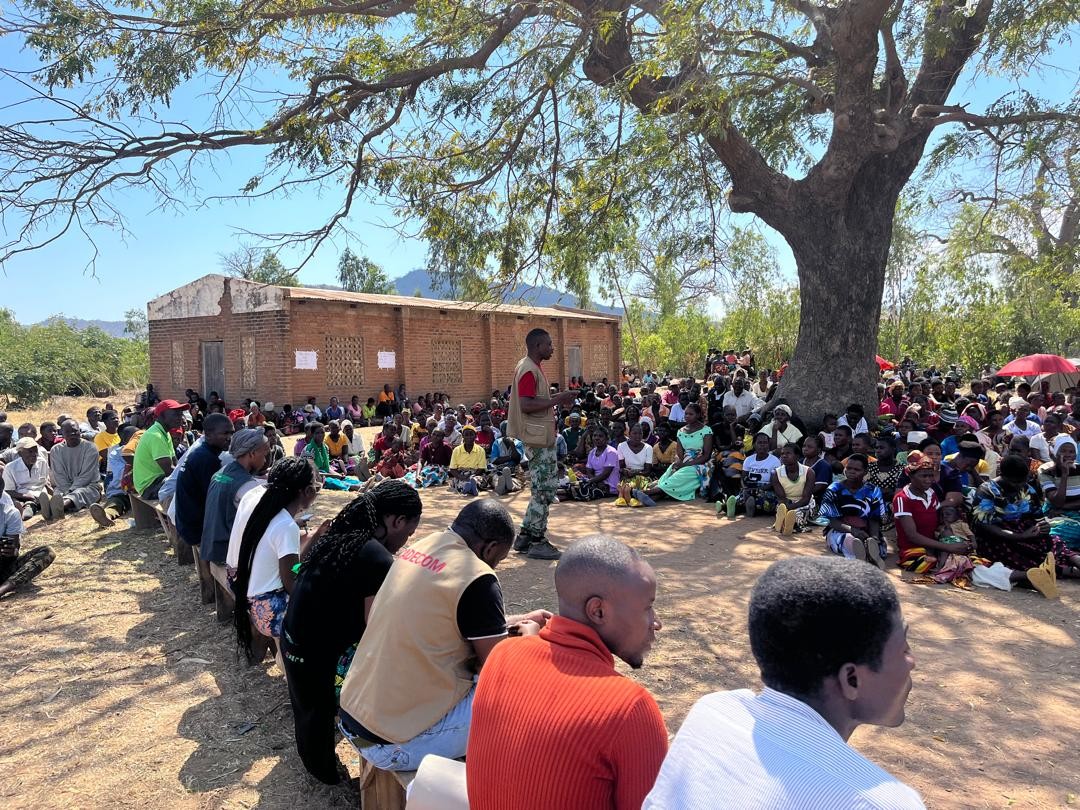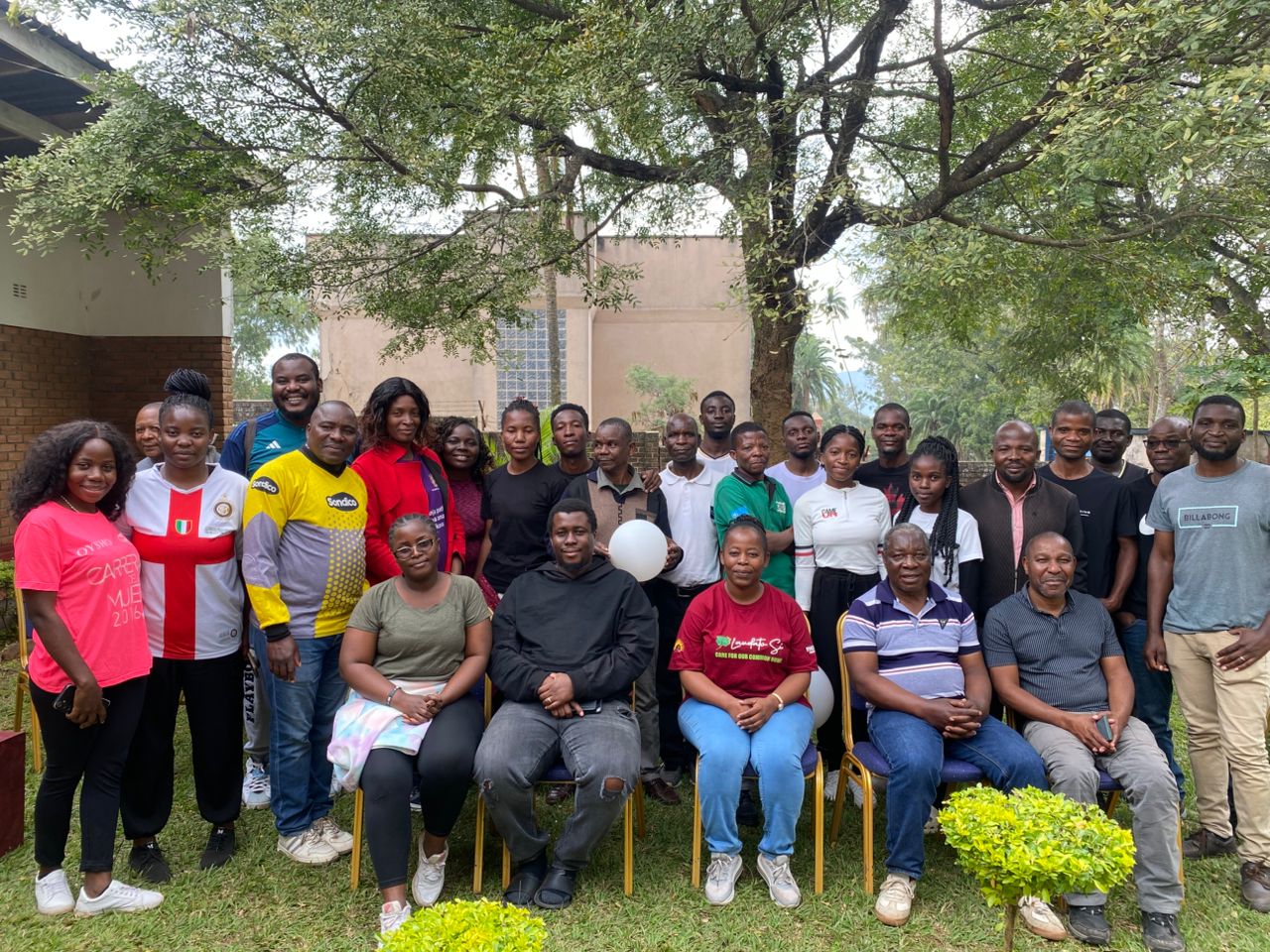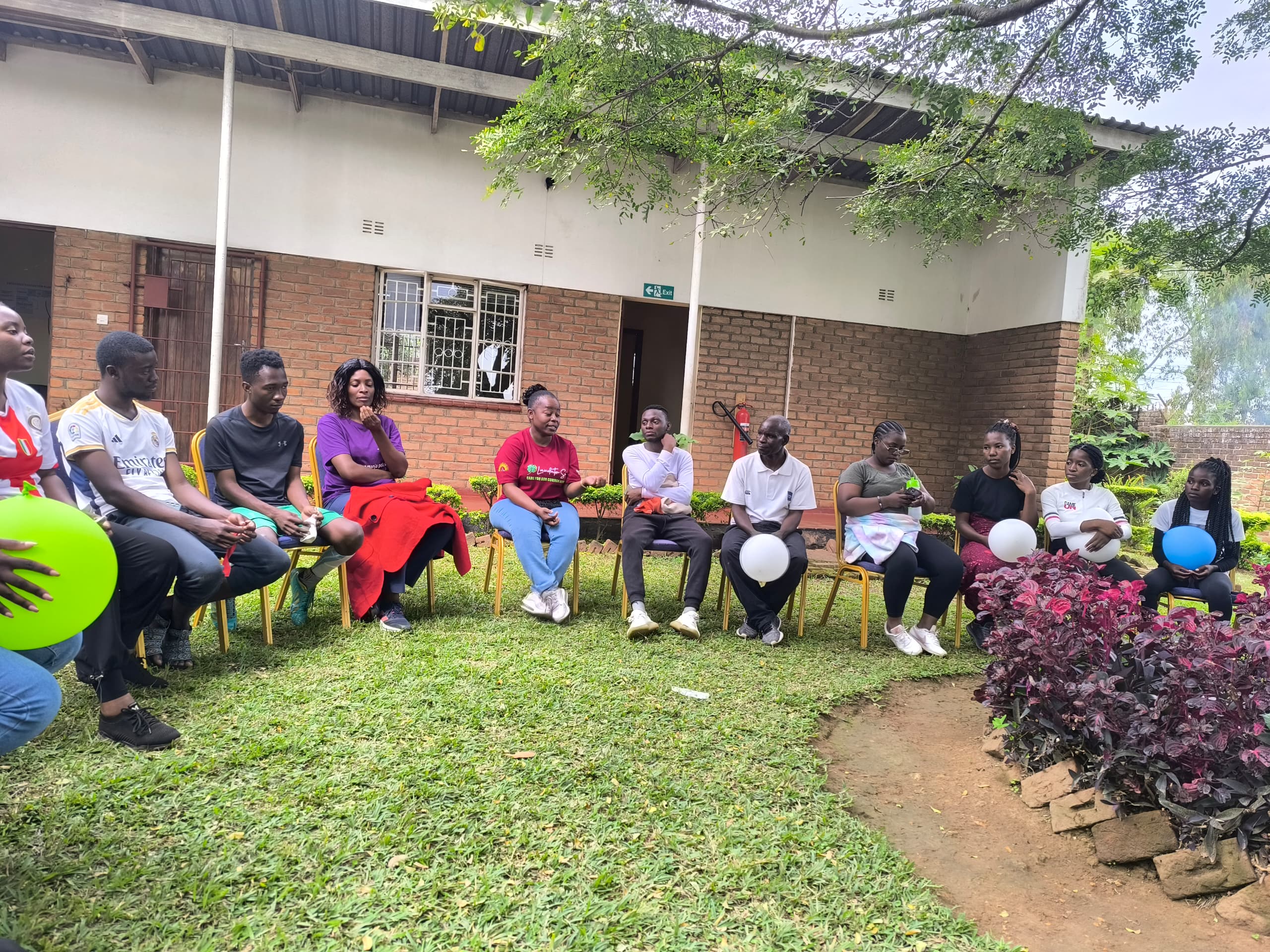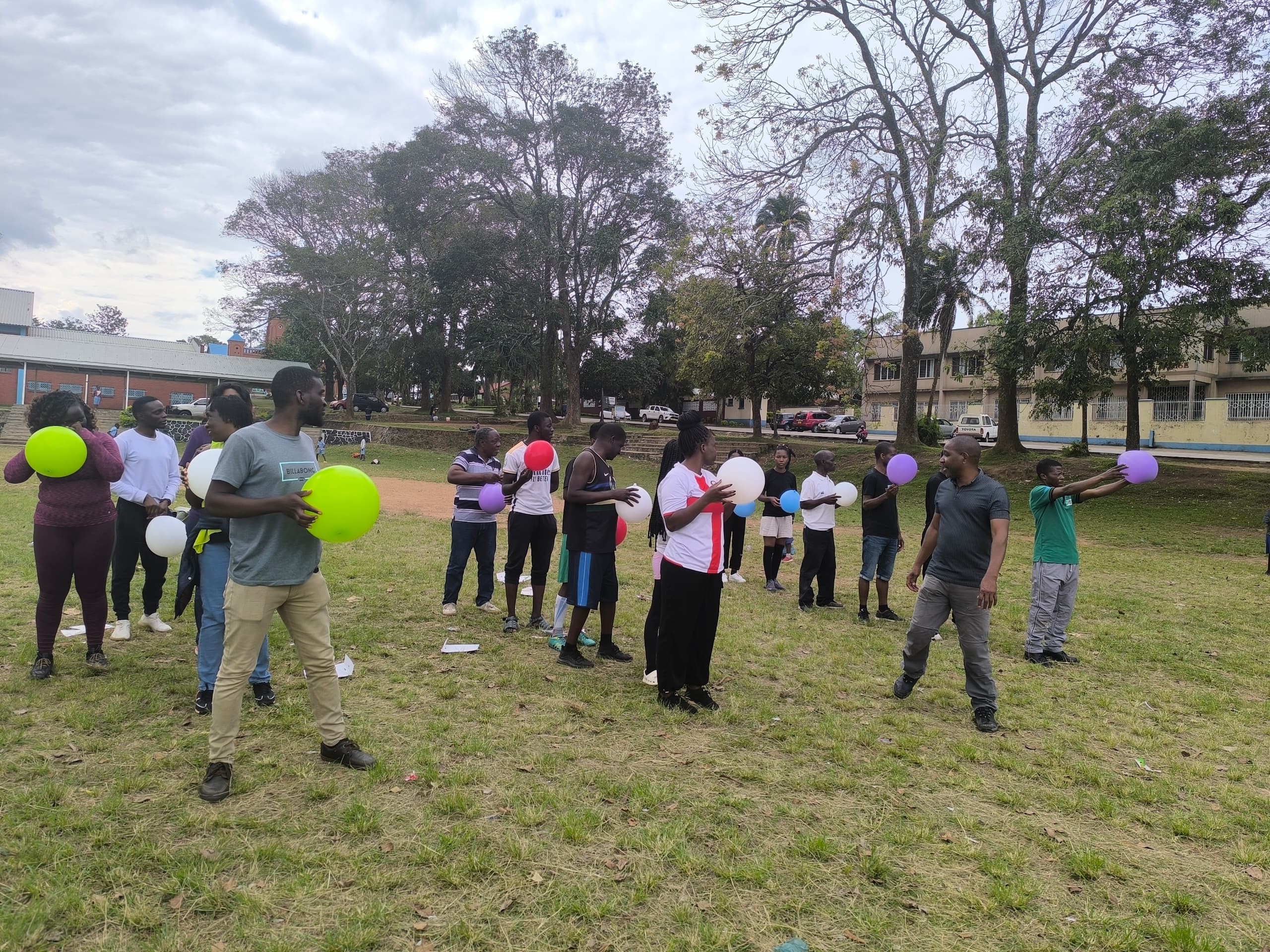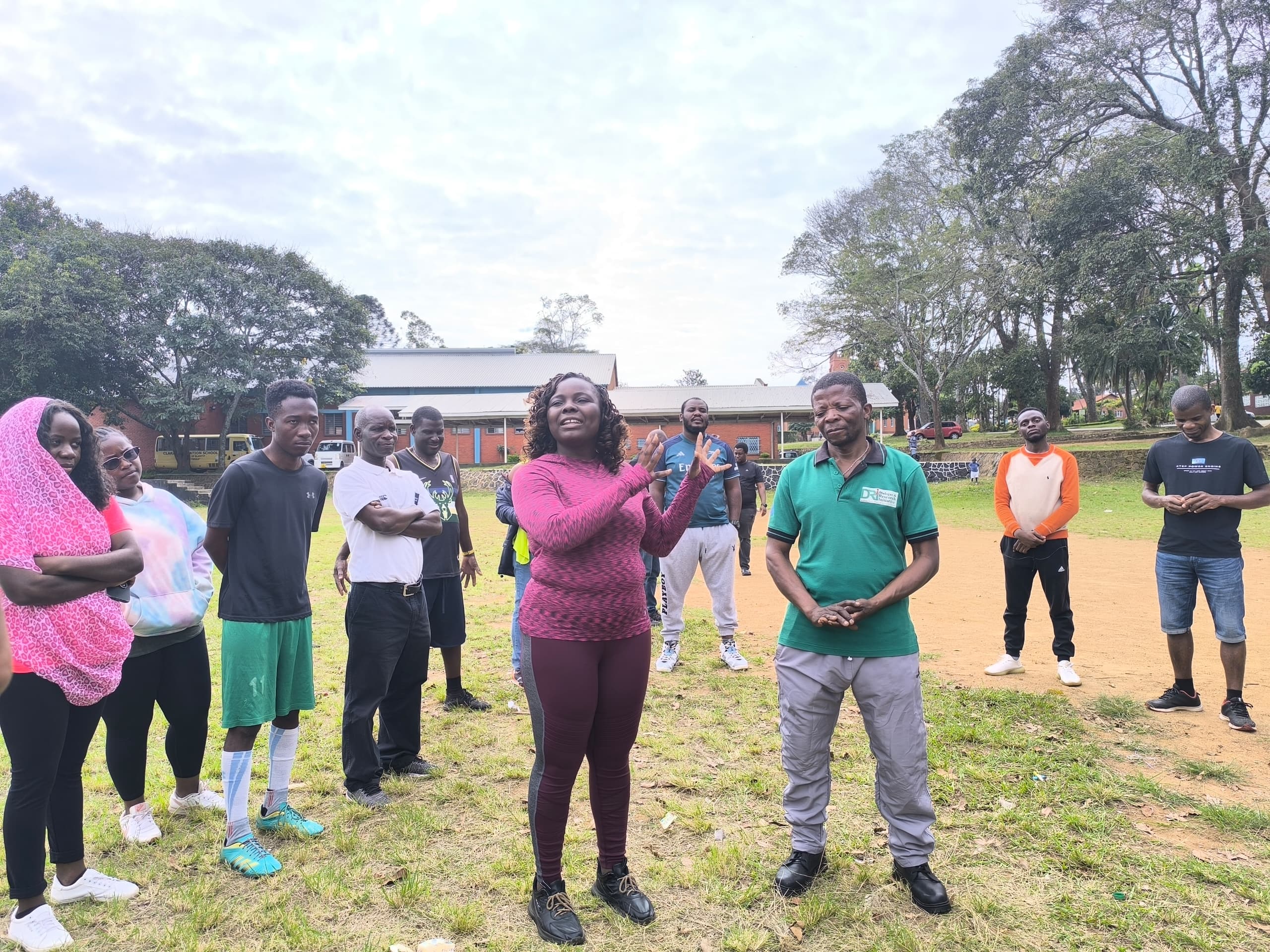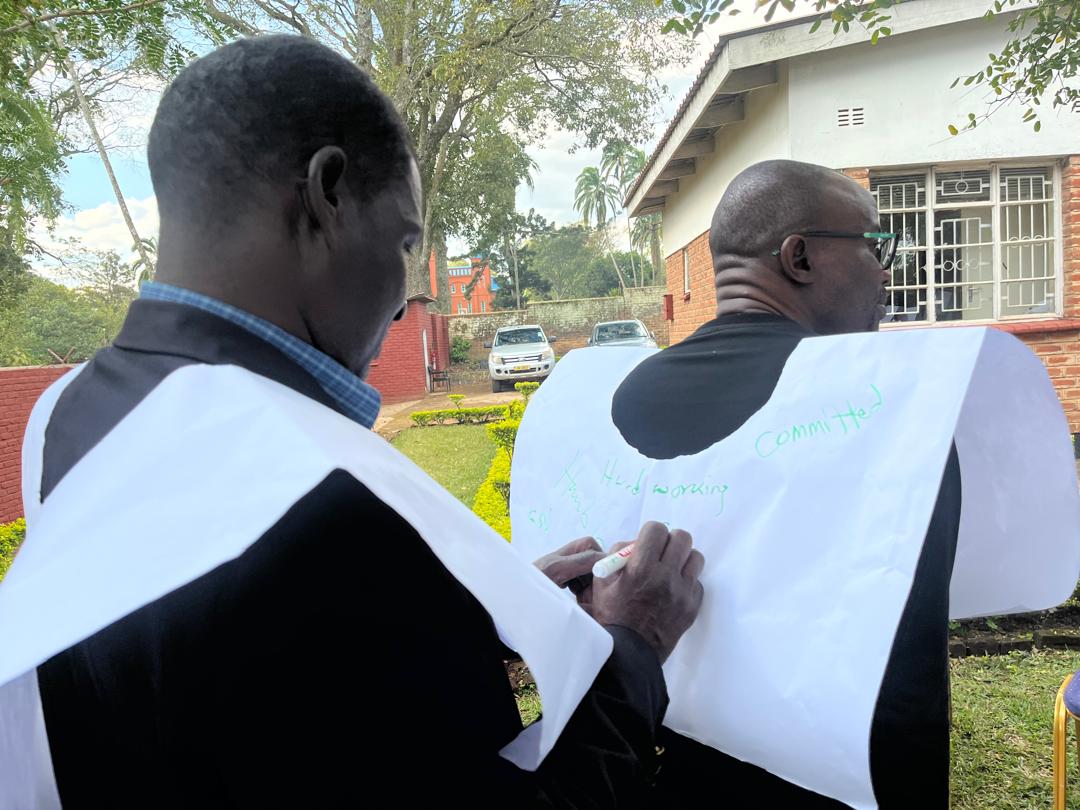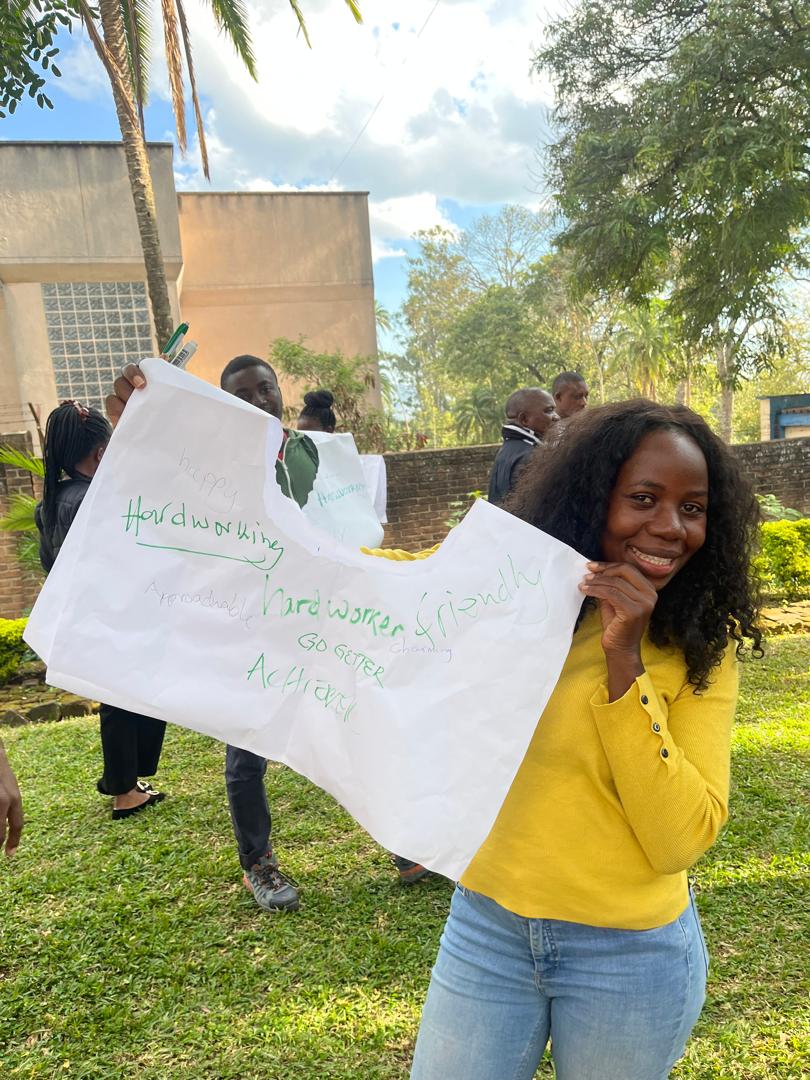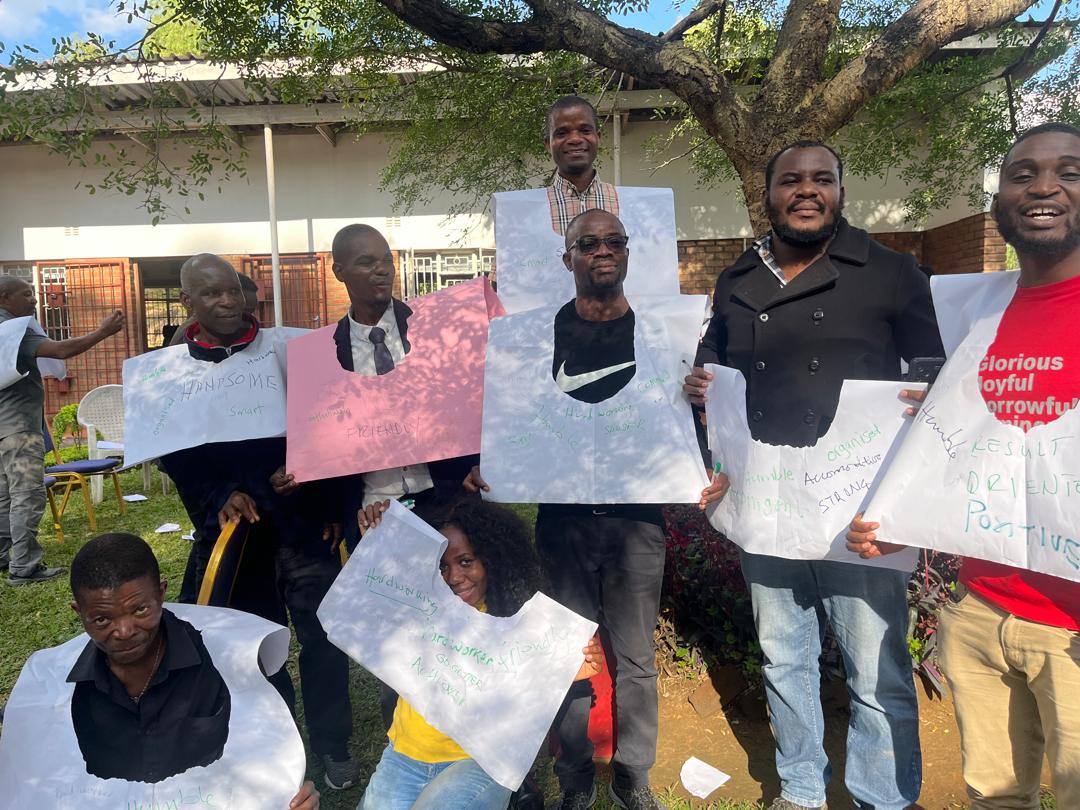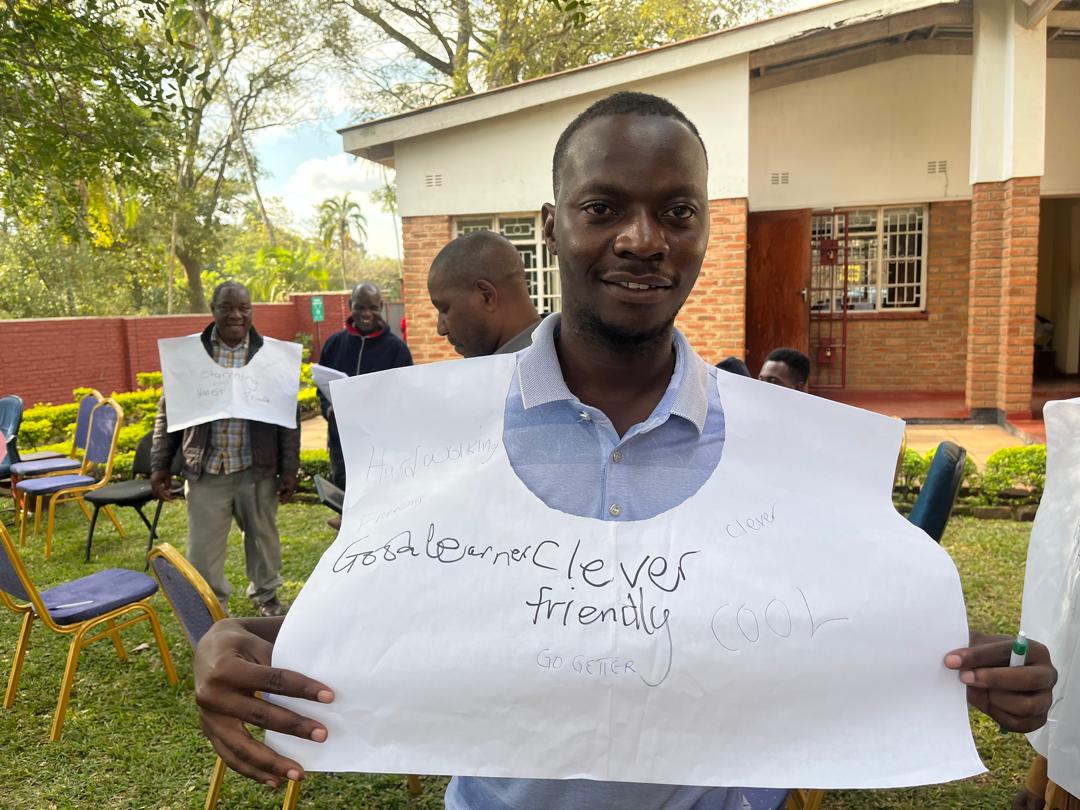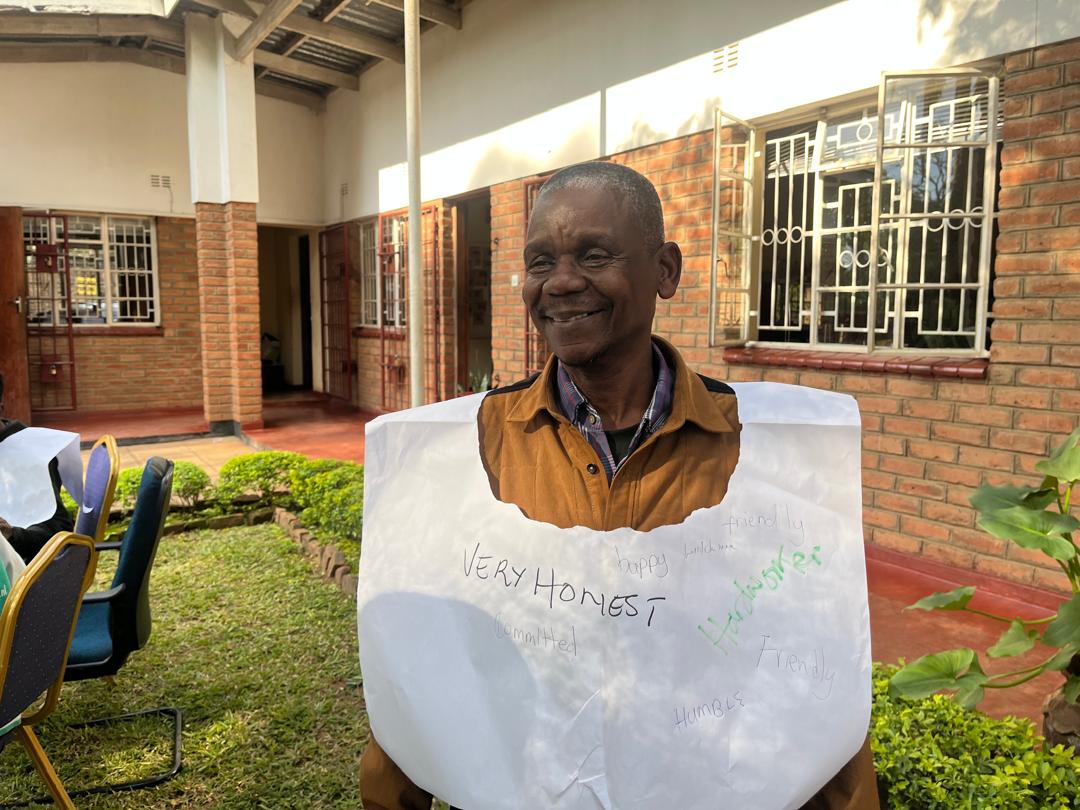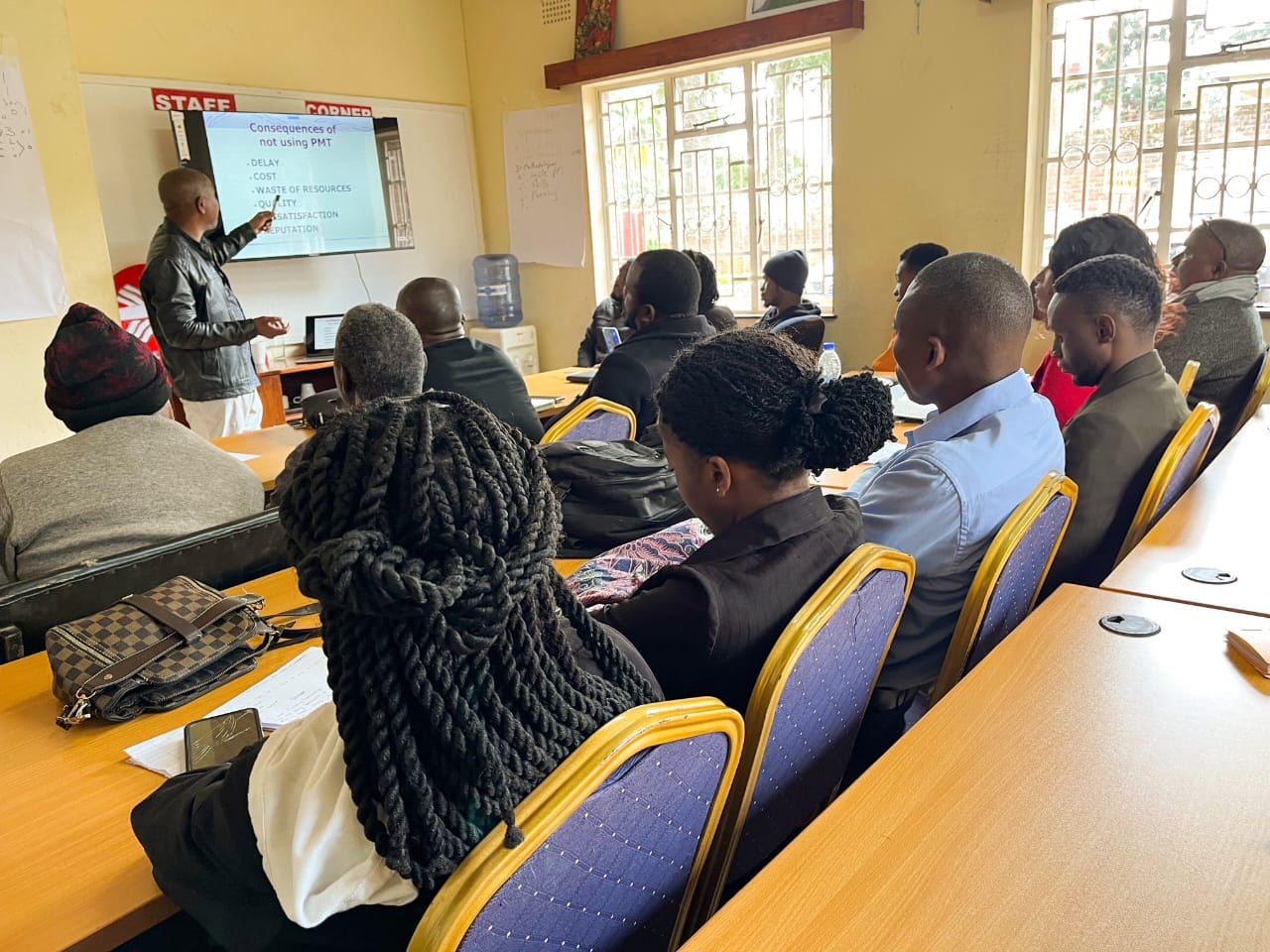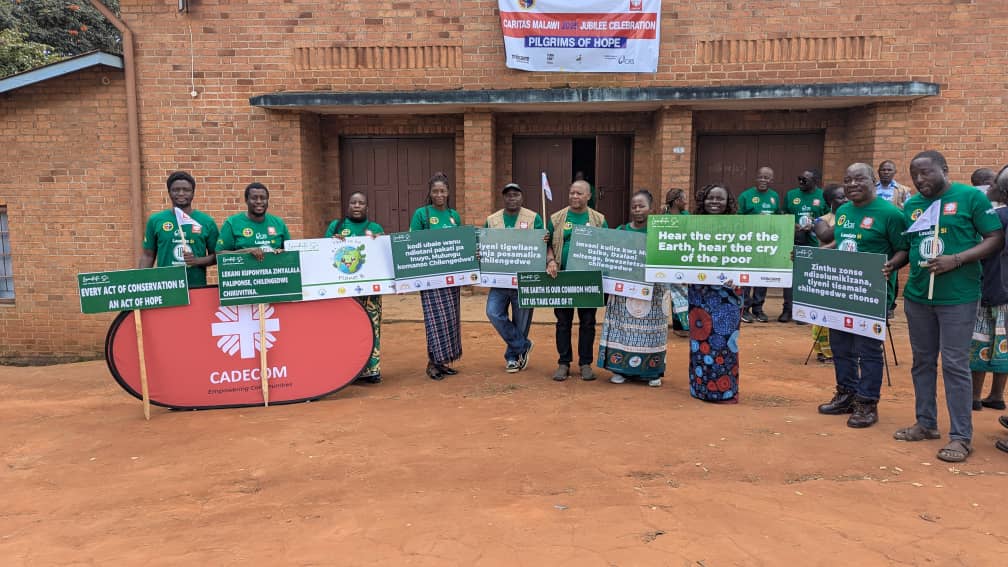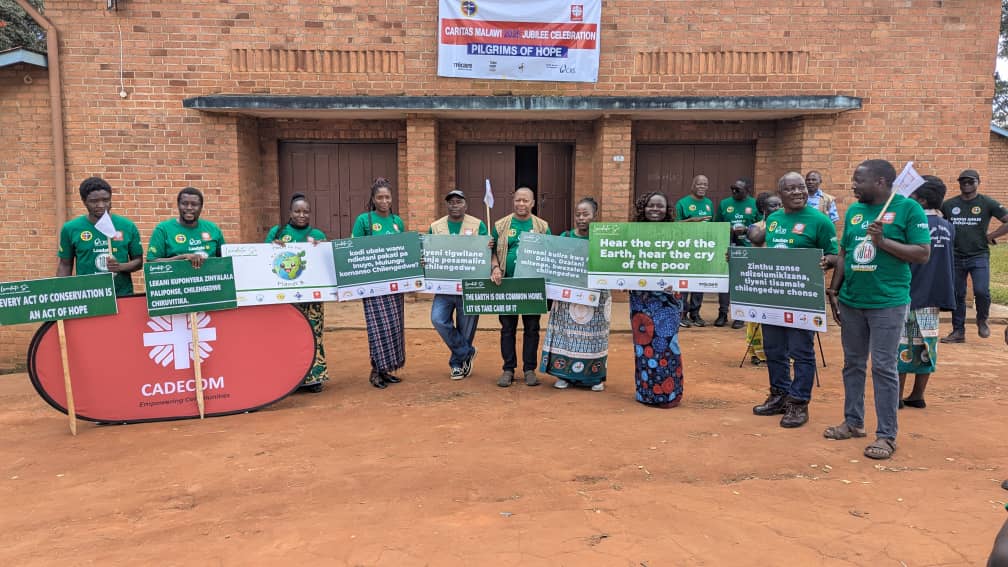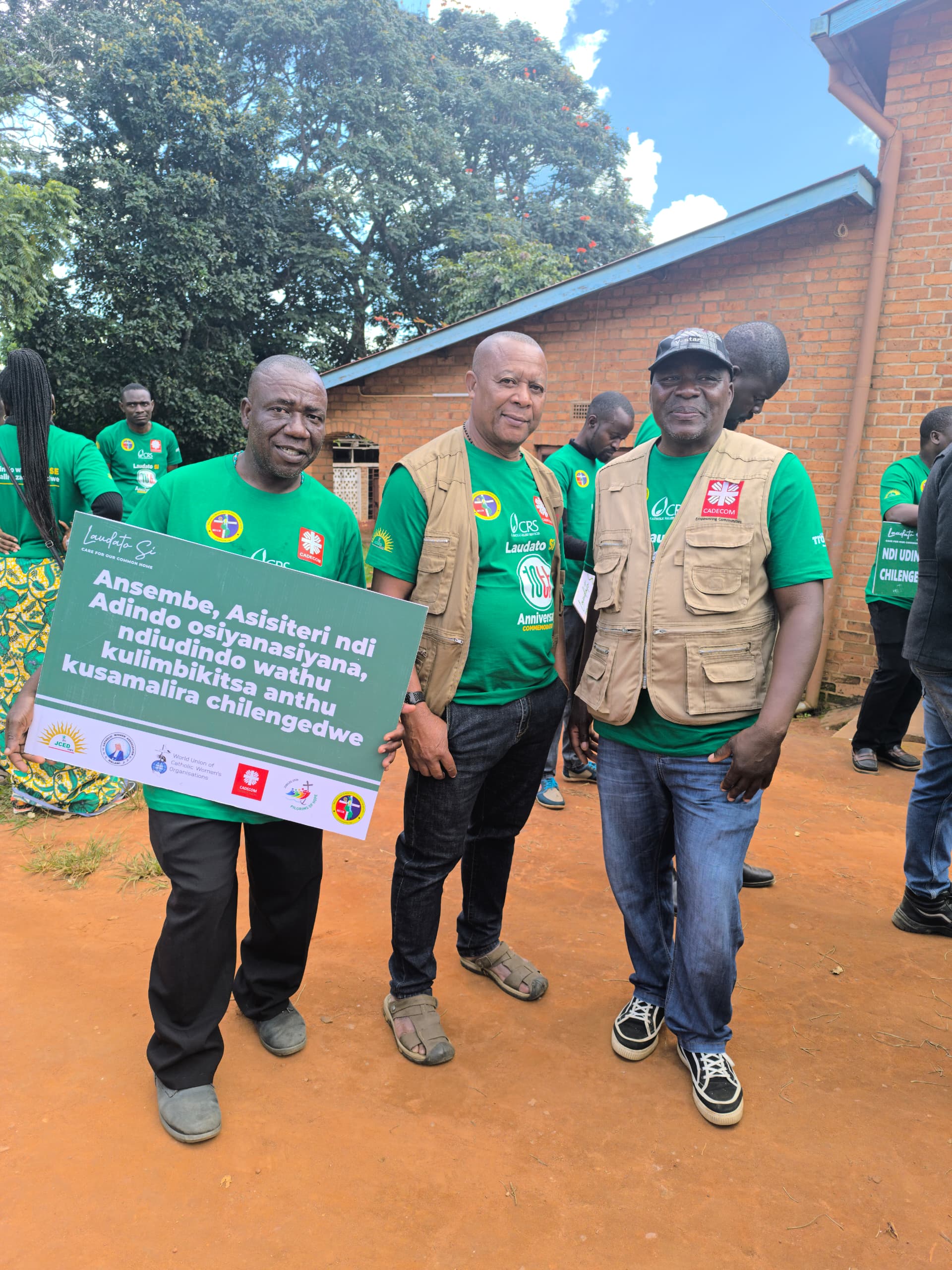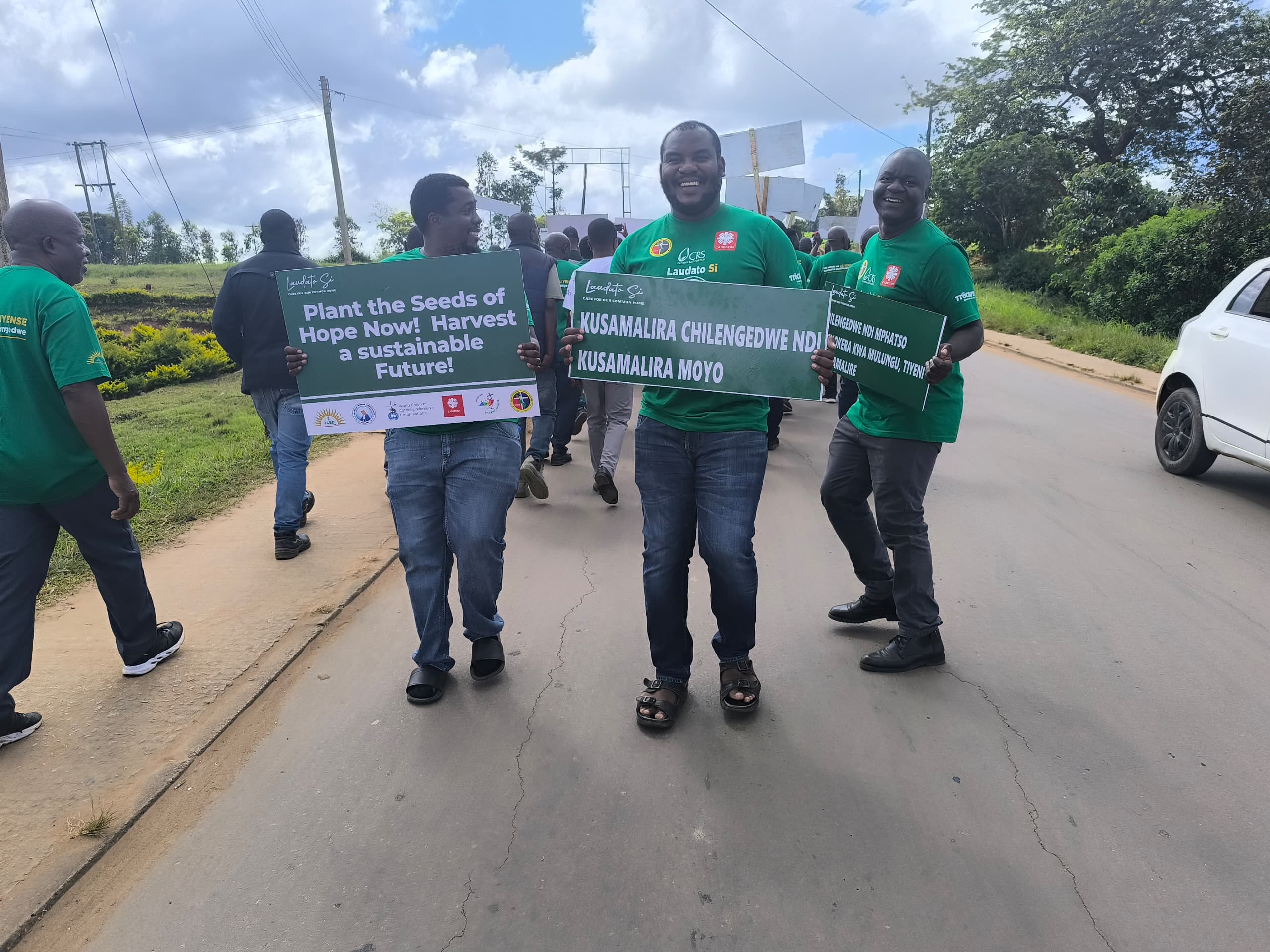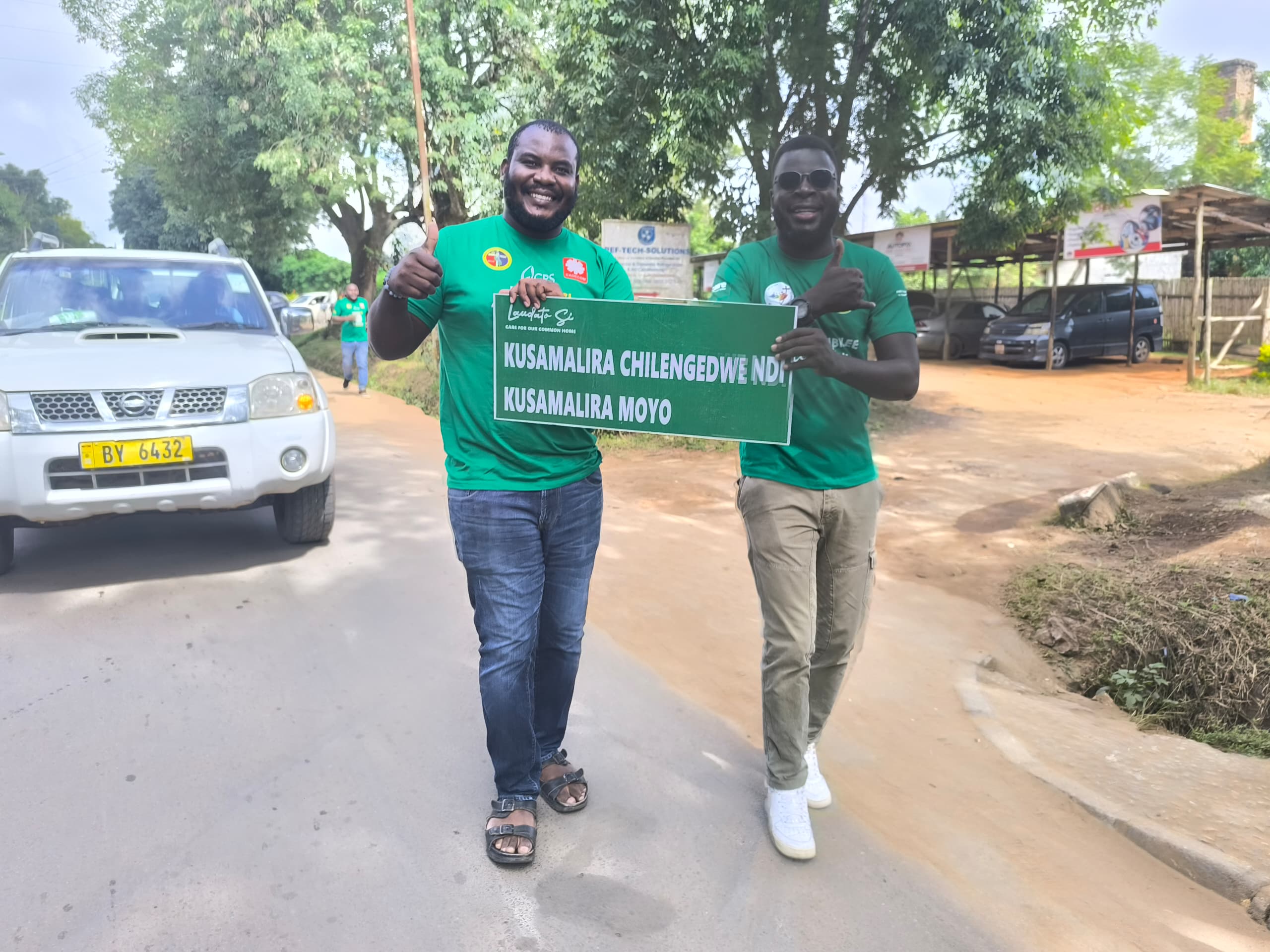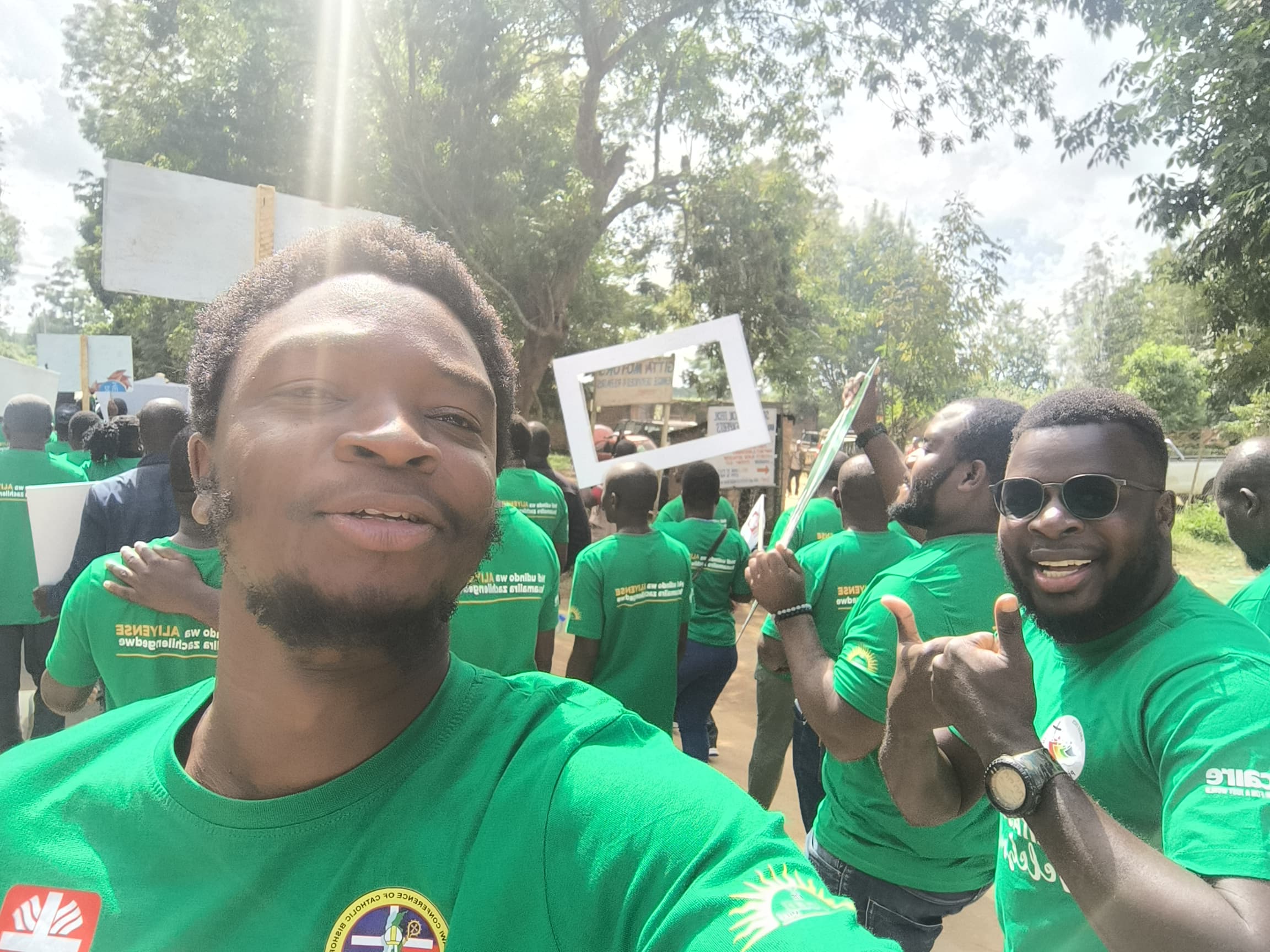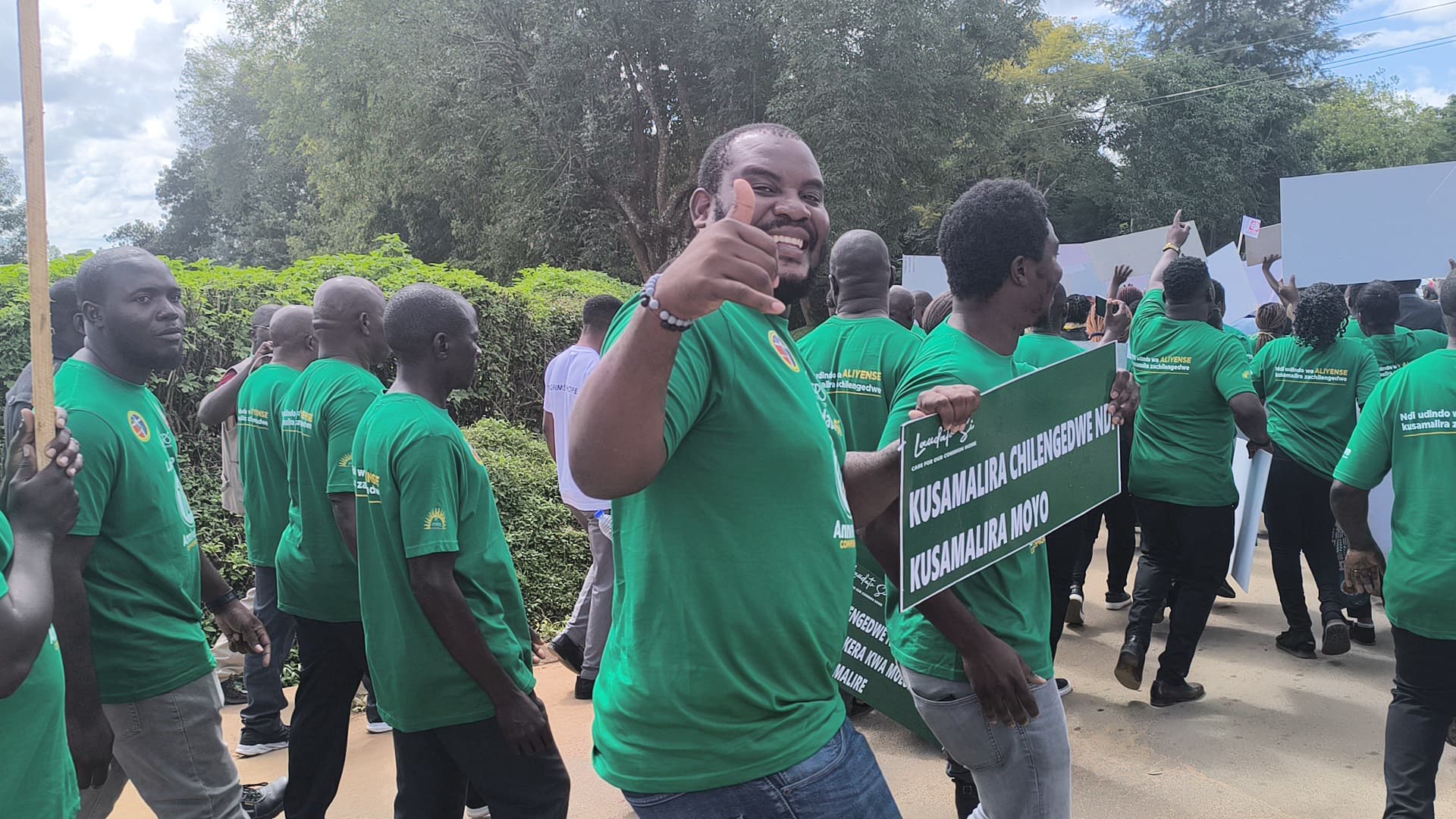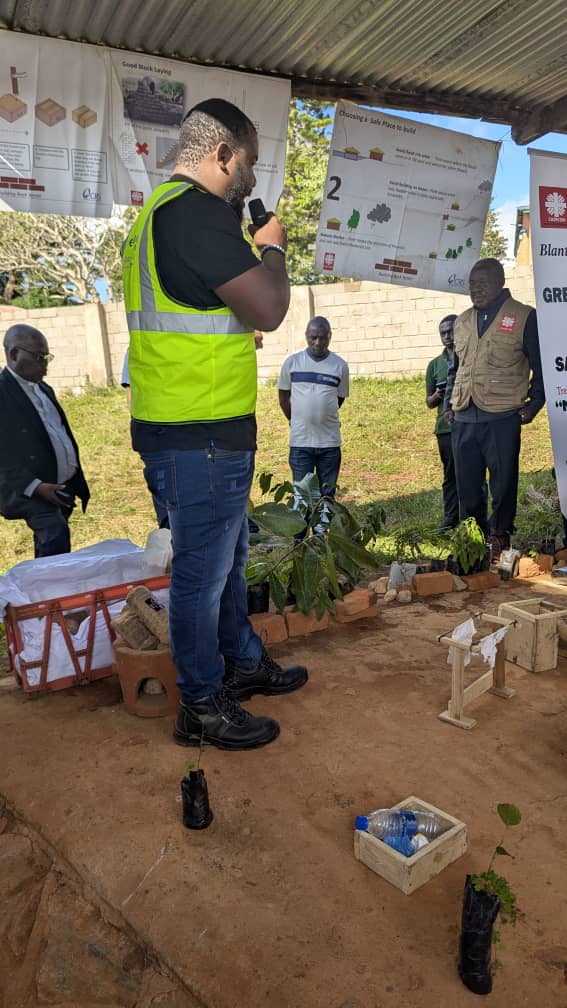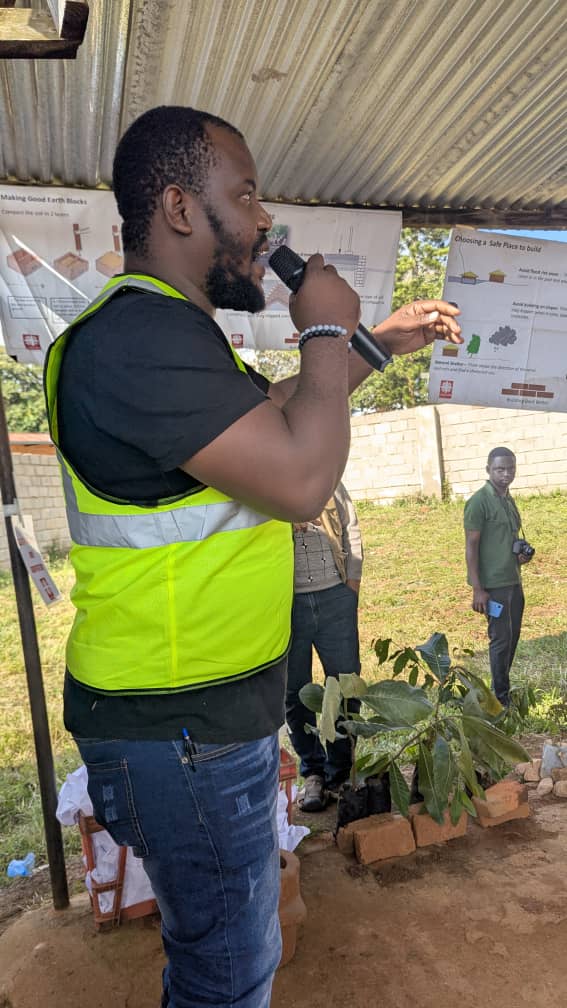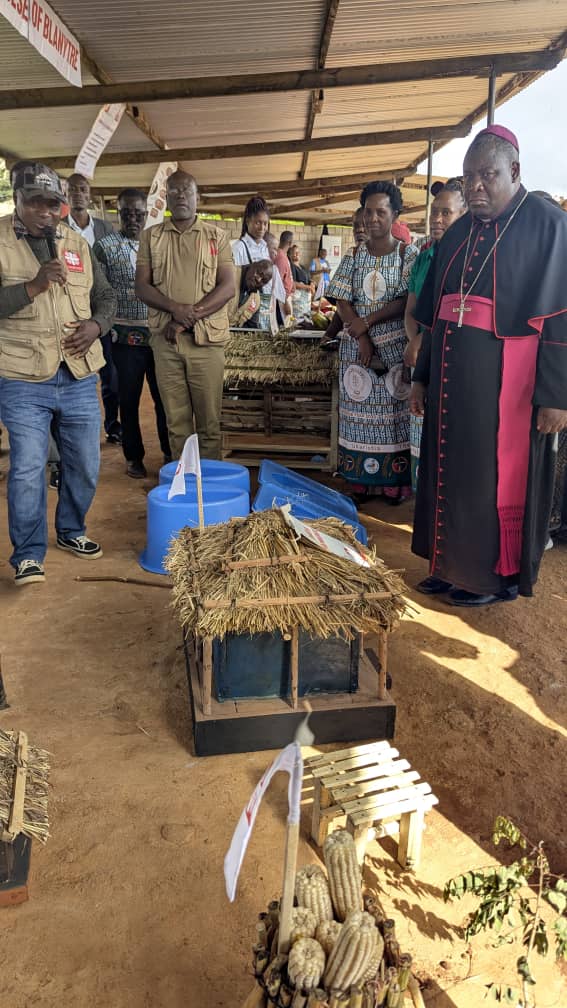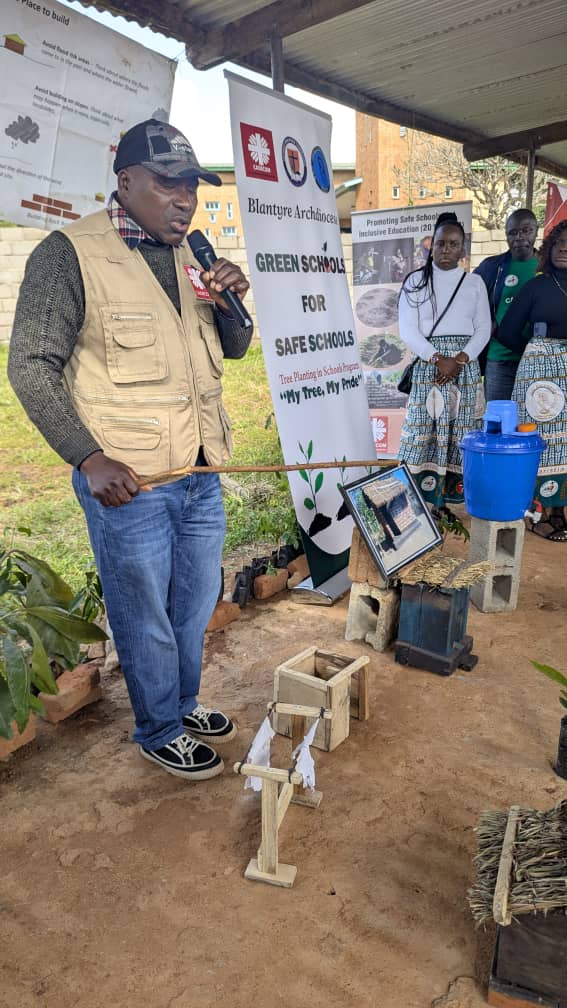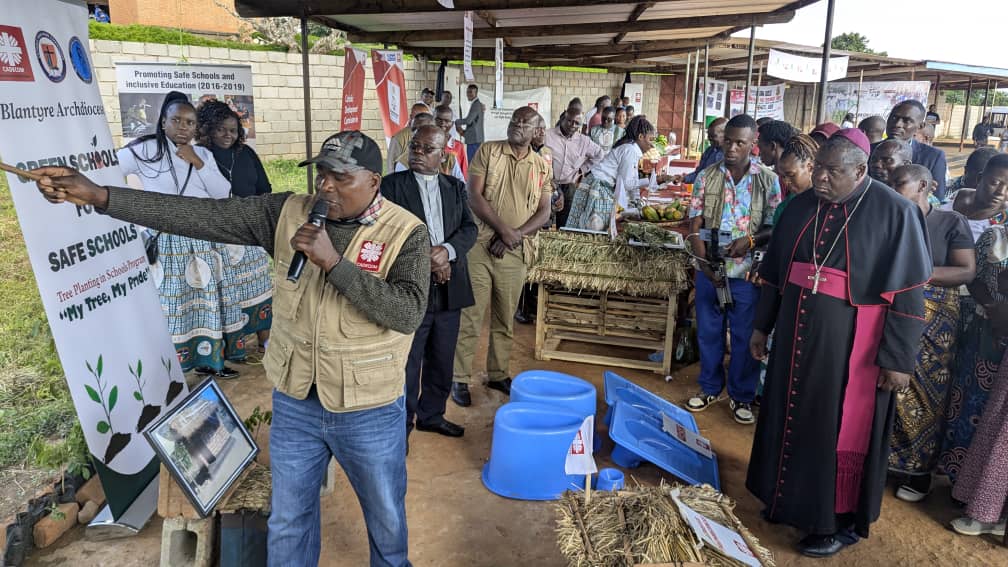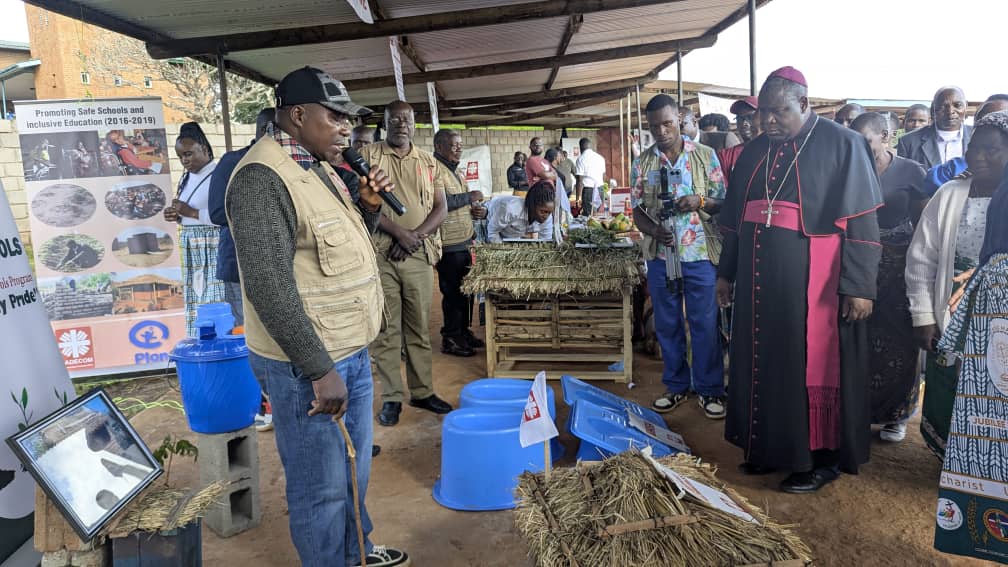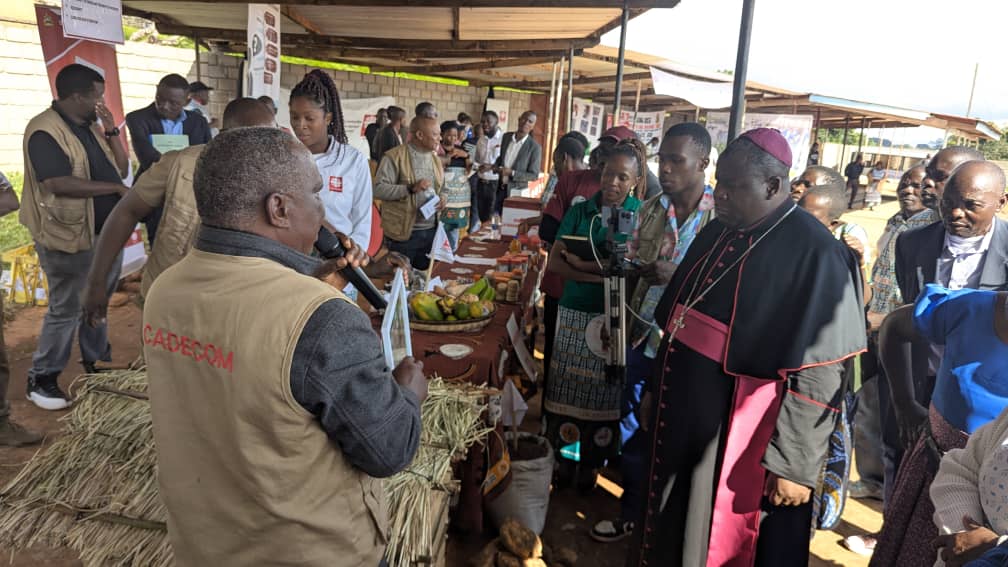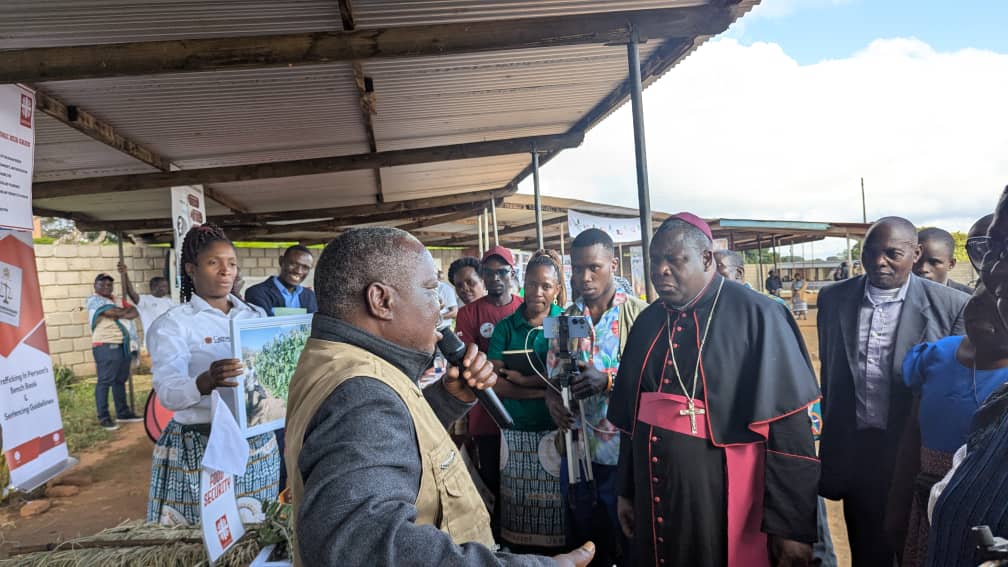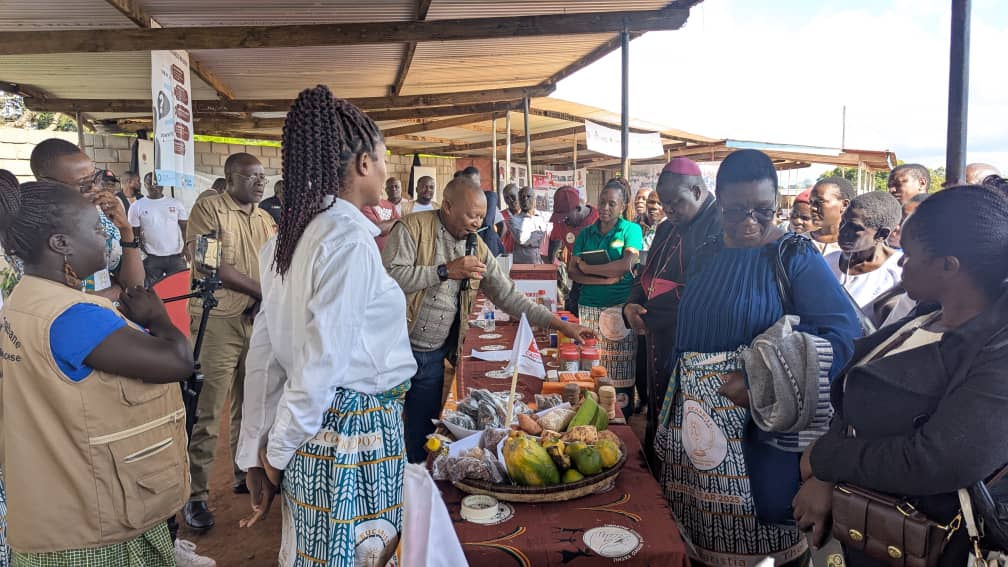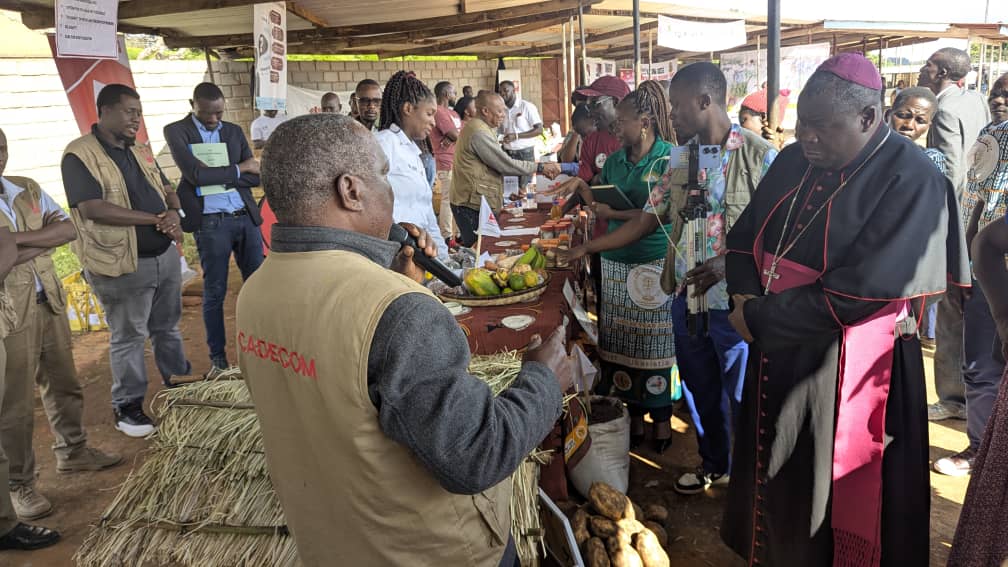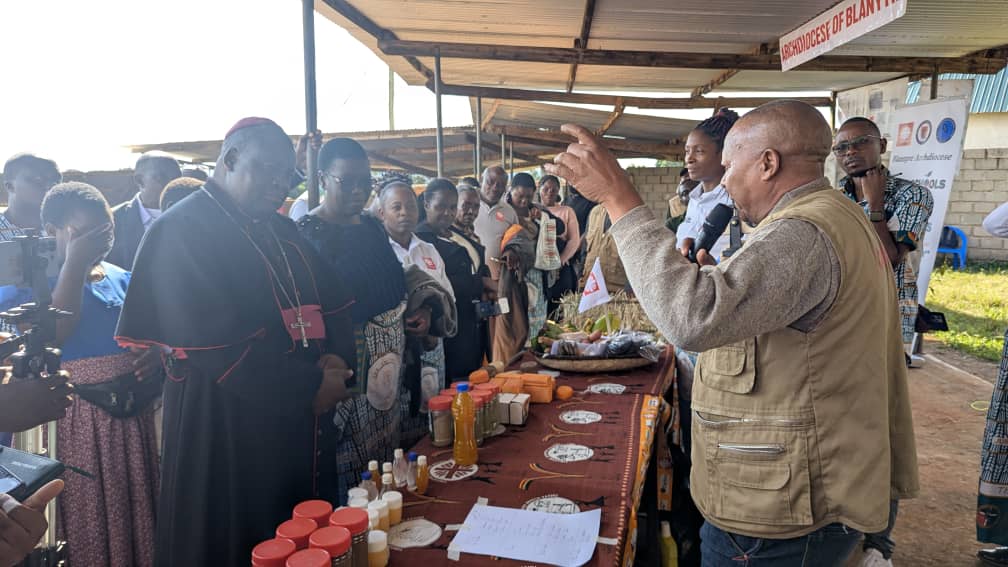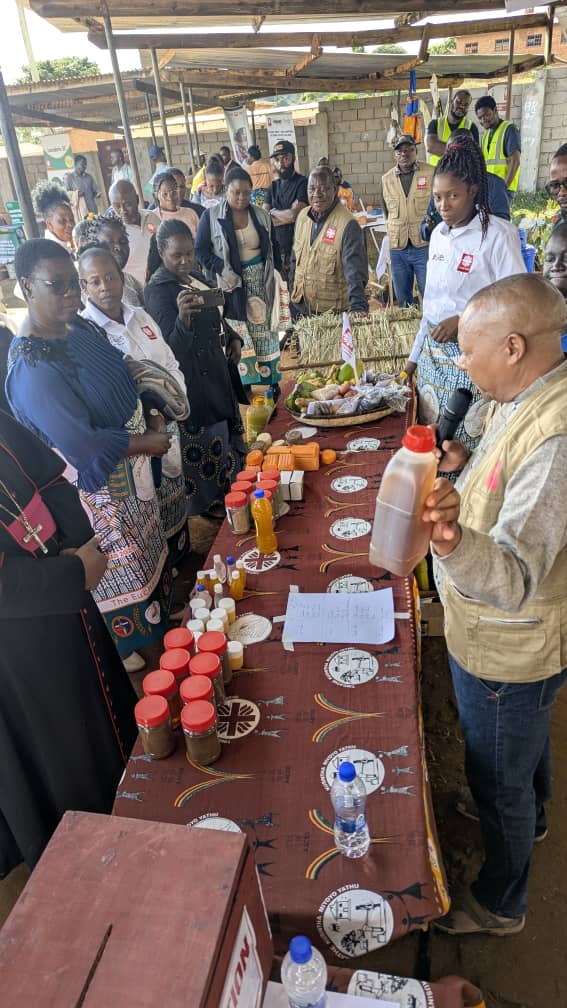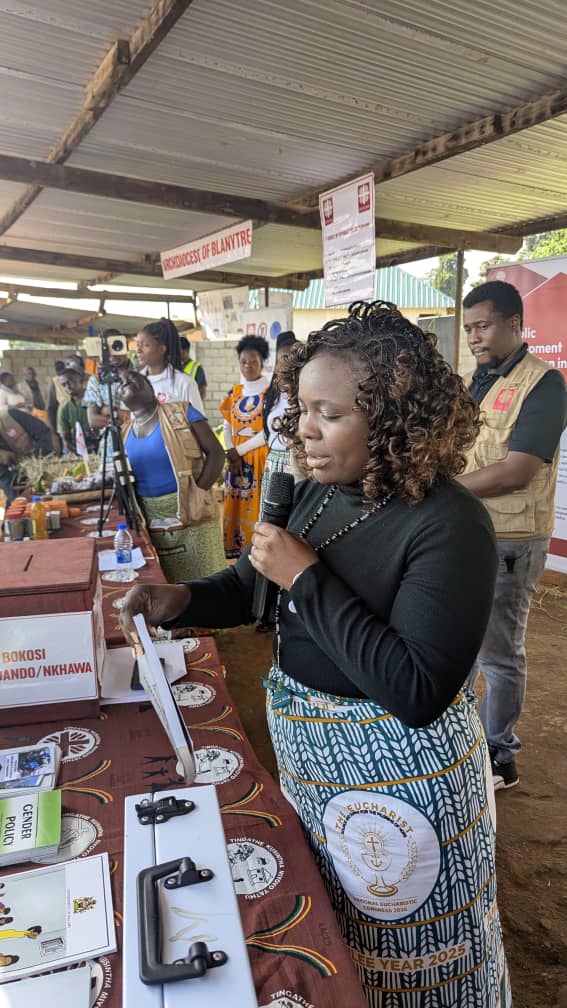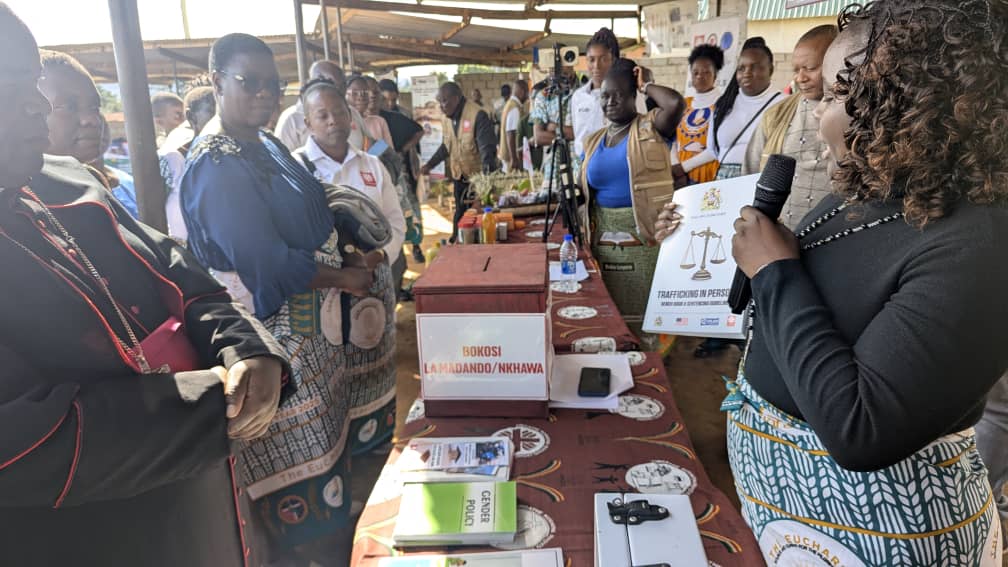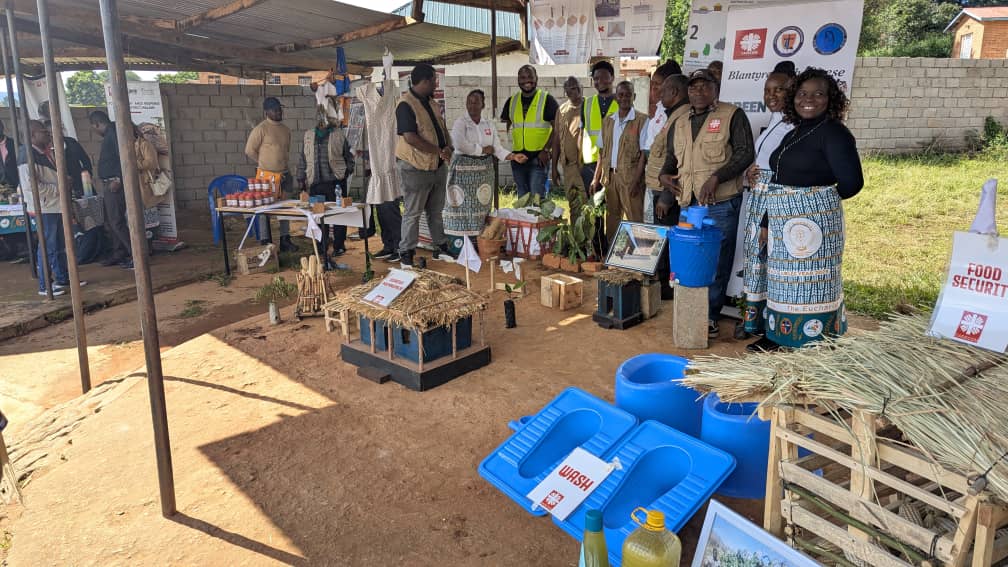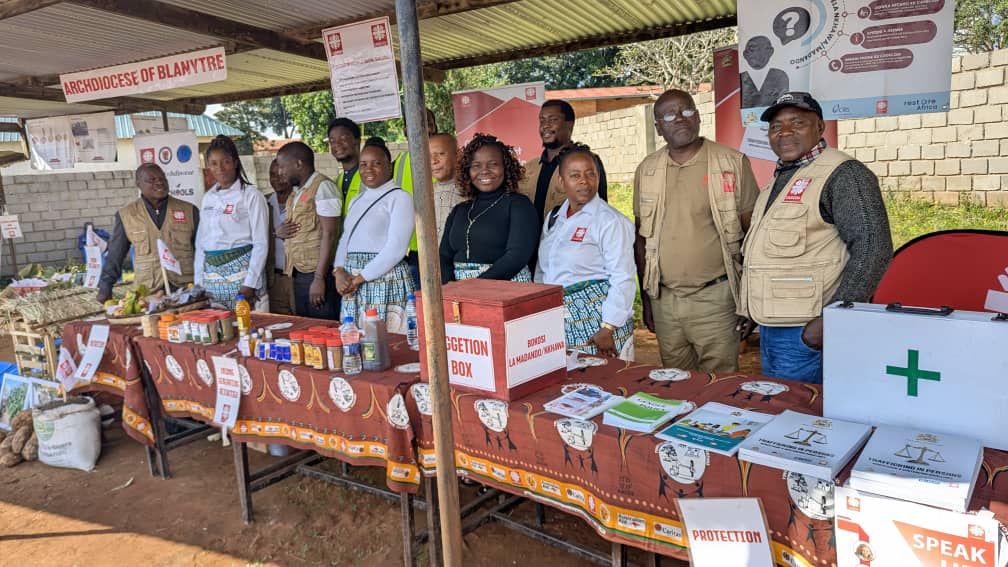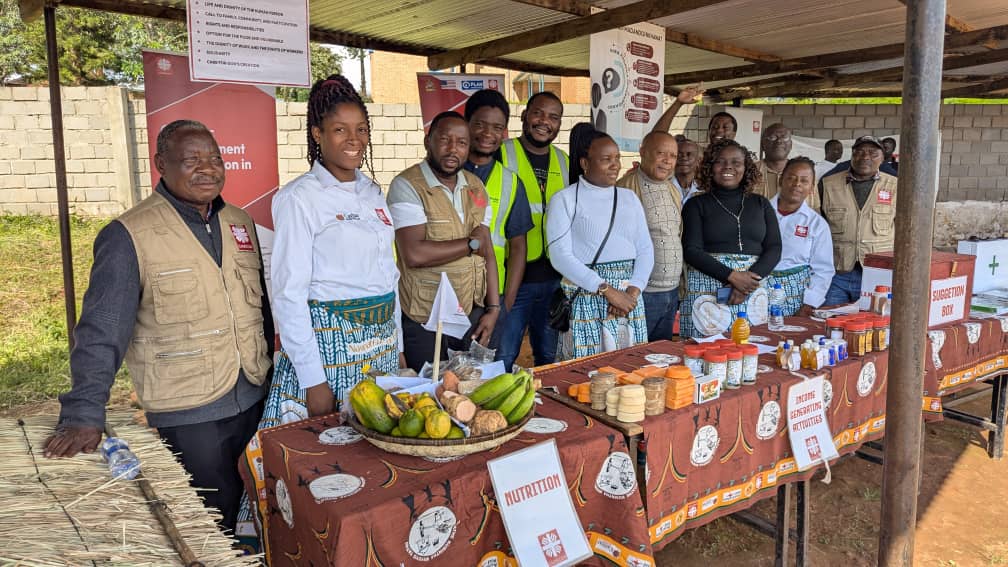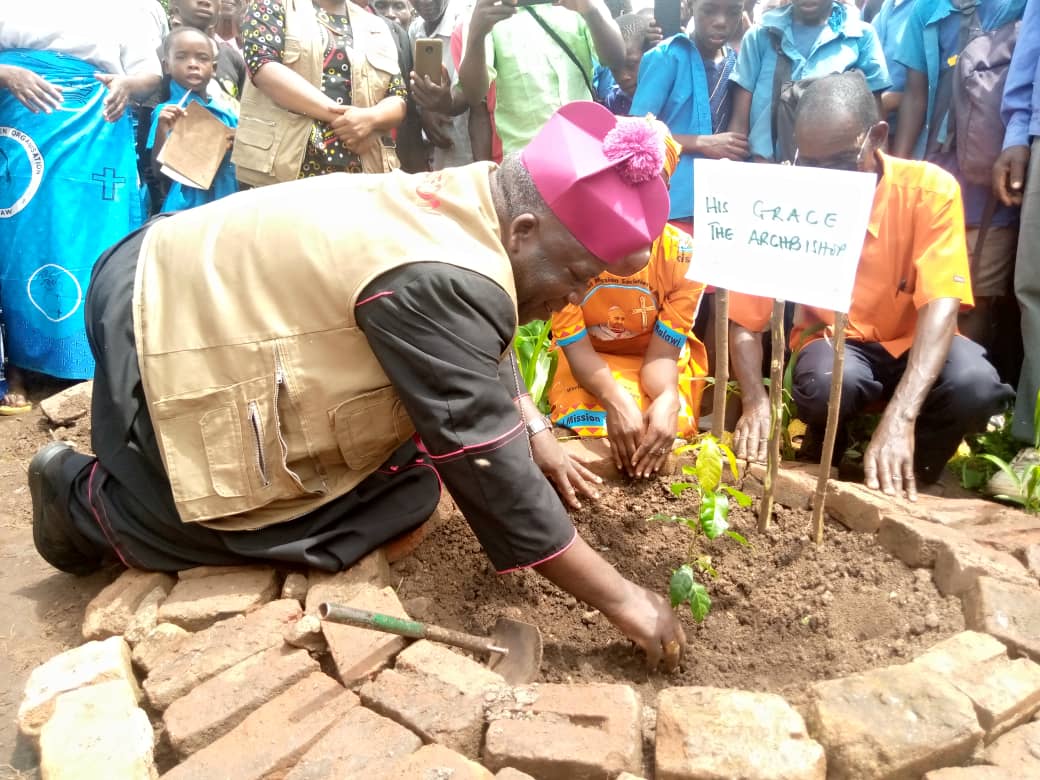CADECOM Blantyre and CARE Malawi with its partners Njira Impact formerly known as FOCCADD and Girls Empowerment Network (GENET) successfully conducted a cash distribution in Chiradzulu, T/A Likoswe on 12th August under DREAMS project funded by BHA. Hundreds of community members gather for this cash distribution. The initiative designed to support various groups affected by the devastating impacts of El Nino, brought not just financial assistance but also a renewed sense of hope to those who have been struggling.
The event was graced by the presence of the archbishop Thomas Luke Msusa, whose warm words of encouragement lifted the spirits of the gathered crowd. His visit was more than ceremonial it was a reminder to the community, he also emphasized on the need to strategic plan on how to support people in the rural areas during natural disasters.
The DREAMS project funded by the United States government, is currently being implemented in the districts of Chiradzulu, Phalombe, and Thyolo, according to CARE Malawi’s Humanitarian Assistance Project Manager Barnet Khulumbo, the project is reaching 14 500 households across the three districts, providing vital support to vulnerable communities.
The DREAMS project was designed to respond to the challenges facing communities that were heavily affected by recent shocks, including food insecurity and the impacts of climate change. Through the initiative households are receiving different forms of support aimed at strengthening their resilience, improving livelihoods and ensuring that vulnerable groups are not left behind
Under the scorching sun beneficiaries queued patiently some with infants strapped to their backs others leaning on their walking sticks all with anticipation in their eyes. For many the cash assistance meant the possibility of buying food to rebuild their livelihoods.
One of the beneficiaries, Teleza Mitaya, who comes from Chitekesa in Phalombe said “I have received k50, 000 and I am going to buy maize so that me and my family can eat” she also said she was very thankful, the DREAMS project has helped her a lot.
The cash distribution continued until Friday taking place in both Chiradzulu and Phalombe. GENET was present to ensure that all the beneficiaries were protected and that the process ran smoothly while CADECOM oversaw the implementation of the activity in both districts.
From 17th to 20th June, CADECOM Blantyre successfully conducted an engaging and impactful
training on project management and team building. The four day training brought together
CADECOM staff and interns with the aim of strengthening collaboration, improving strategic
thinking and enhancing personal connections within the organization.
The sessions were expertly facilitated by Mr. Charles Chimombo, an experienced trainer with strong background in organization development and team dynamics. His guidance allowed participants to reflect deeply on their roles and contributes to team success. Each day was marked by activities that encouraged participants to connect more deeply not just as colleagues but as individuals working towards a shared mission. From group challenges that tested strategic thinking to reflective moments of mutual appreciation the training left a lasting impact on all who took part.
The highlight of the training was sports day held on the final day 20th June. Teams competed in
friendly sports competitions that encouraged strategic planning and most important, teamwork
and cooperation. The week was filled with energy and accomplishments.
This training not only enhanced participants understanding of project management but also
reminded everyone of the value of unity, communication and support in achieving shared goals.
CADECOM Blantyre remains committed to building strong dynamic teams that serve
communities with passion and purpose.
This week, we gathered for a special event at Ligowe in Neno district centered around planting trees, a vital initiative for our community and the environment. The Archbishop of The Archdiocese of Blantyre, The Most Rev. Thomas Luke Msusa emphasized the importance of trees, describing them as the lungs of our city that absorb carbon dioxide and release the oxygen we need to survive. He highlighted their role in cooling our streets, reducing flood risks, and providing habitats for wildlife. With support from AMECEA and Centenary Bank, this initiative aims not only to beautify our surroundings but also to foster a lasting commitment to environmental stewardship.
In his address, the archbishop urged everyone to take part in tree planting, reinforcing the message from Pope Francis’s Encyclical, Laudato Si', which calls for us to care for our planet. He encouraged schools to adopt tree care initiatives and for adults to utilize every available space for planting. Each tree we plant symbolizes hope for a greener future, offering shade and clean air for generations to come. By working together, we can cultivate a legacy of environmental responsibility and make a meaningful impact on our community and the world. Let us embrace this call to action and plant trees with the intent to nurture and protect our environment.
His Grace also called on the government to put in place laws and regulations that will help curb the uncontrolled cutting down of trees as is the case in other countries.
This week, we gathered for a special event at Ligowe in Neno district centered around planting trees, a vital initiative for our community and the environment. The Archbishop of The Archdiocese of Blantyre, The Most Rev. Thomas Luke Msusa emphasized the importance of trees, describing them as the lungs of our city that absorb carbon dioxide and release the oxygen we need to survive. He highlighted their role in cooling our streets, reducing flood risks, and providing habitats for wildlife. With support from AMECEA and Centenary Bank, this initiative aims not only to beautify our surroundings but also to foster a lasting commitment to environmental stewardship.
In his address, the archbishop urged everyone to take part in tree planting, reinforcing the message from Pope Francis’s Encyclical, Laudato Si', which calls for us to care for our planet. He encouraged schools to adopt tree care initiatives and for adults to utilize every available space for planting. Each tree we plant symbolizes hope for a greener future, offering shade and clean air for generations to come. By working together, we can cultivate a legacy of environmental responsibility and make a meaningful impact on our community and the world. Let us embrace this call to action and plant trees with the intent to nurture and protect our environment.
His Grace also called on the government to put in place laws and regulations that will help curb the uncontrolled cutting down of trees as is the case in other countries.

